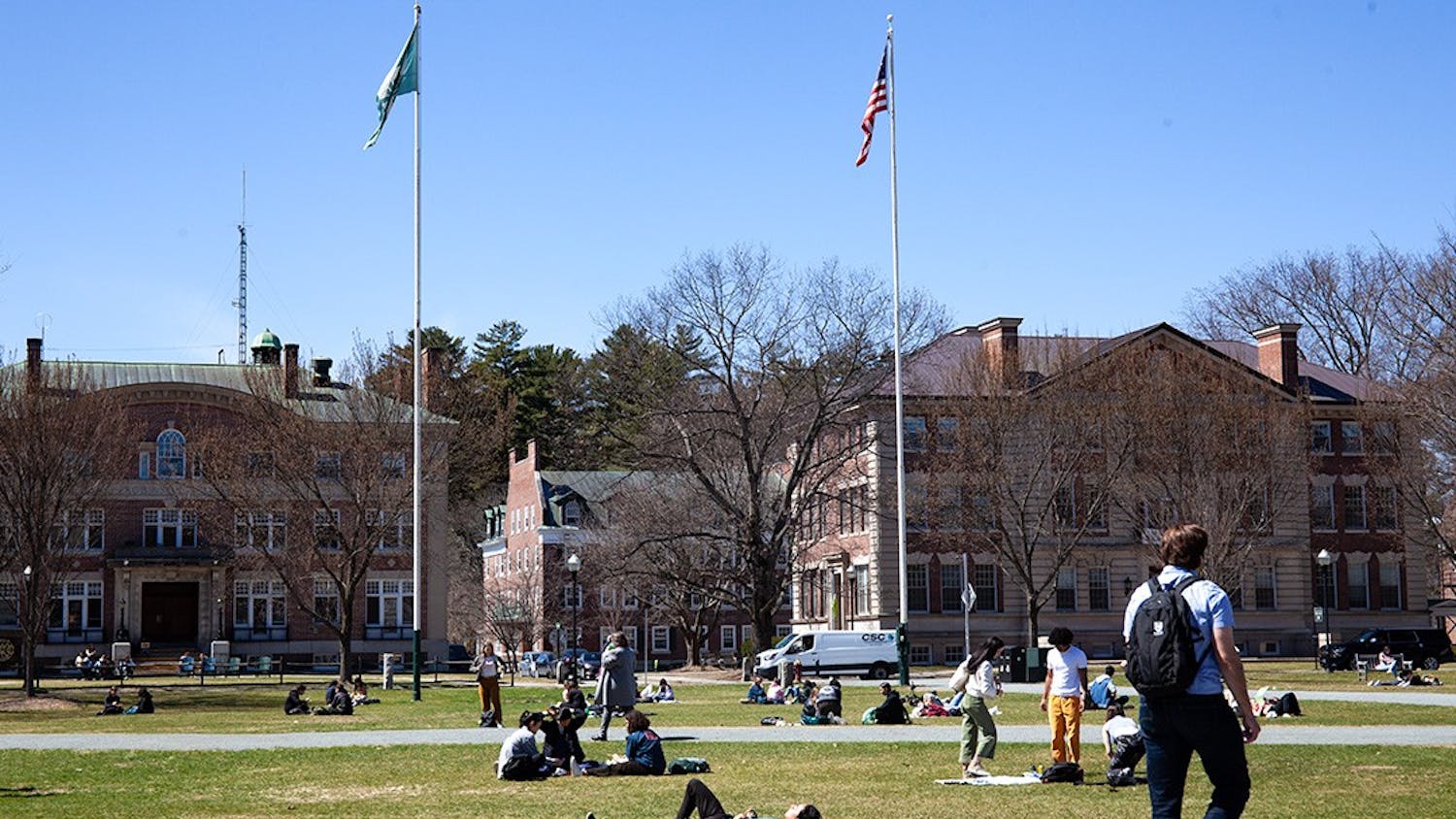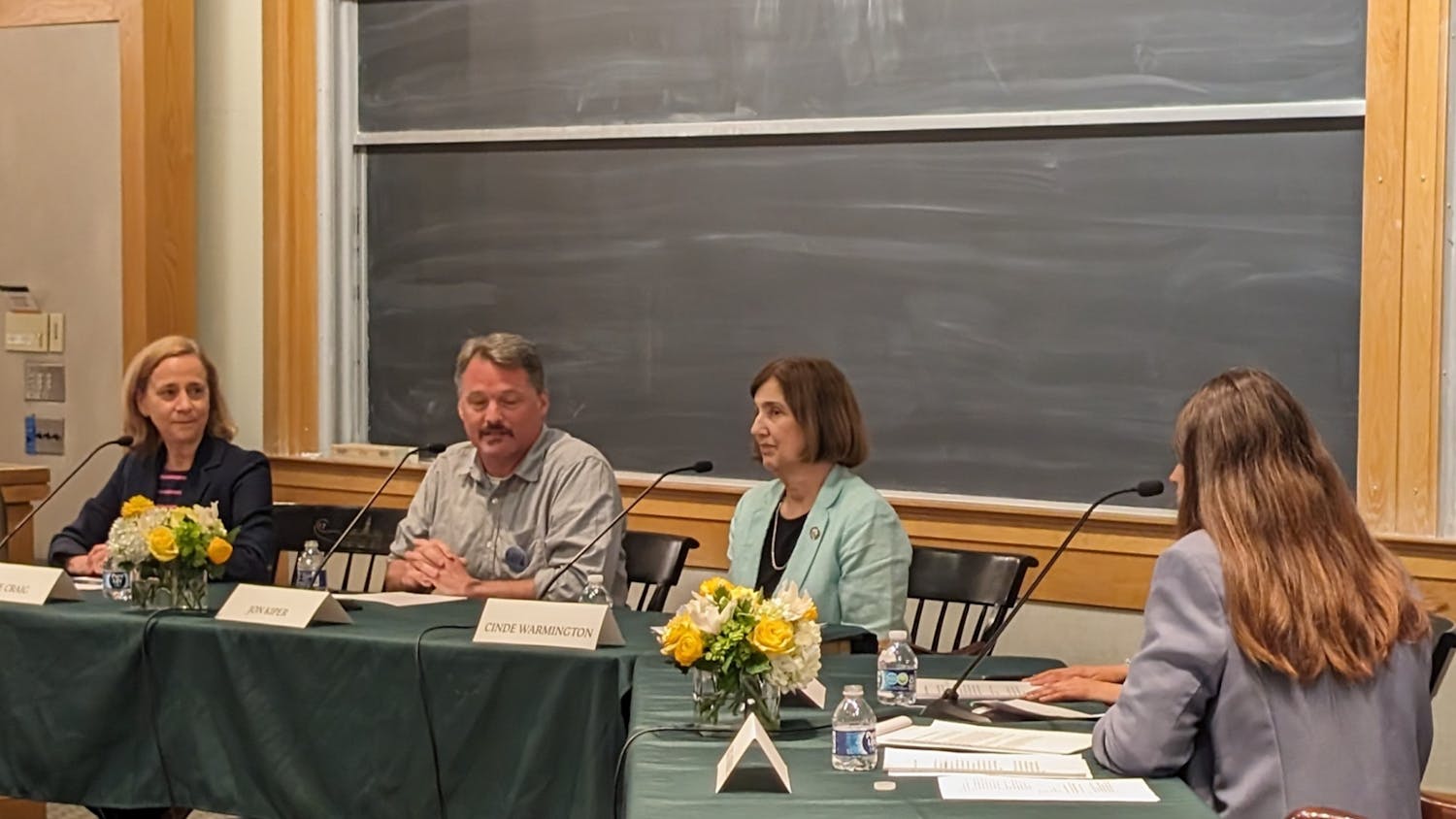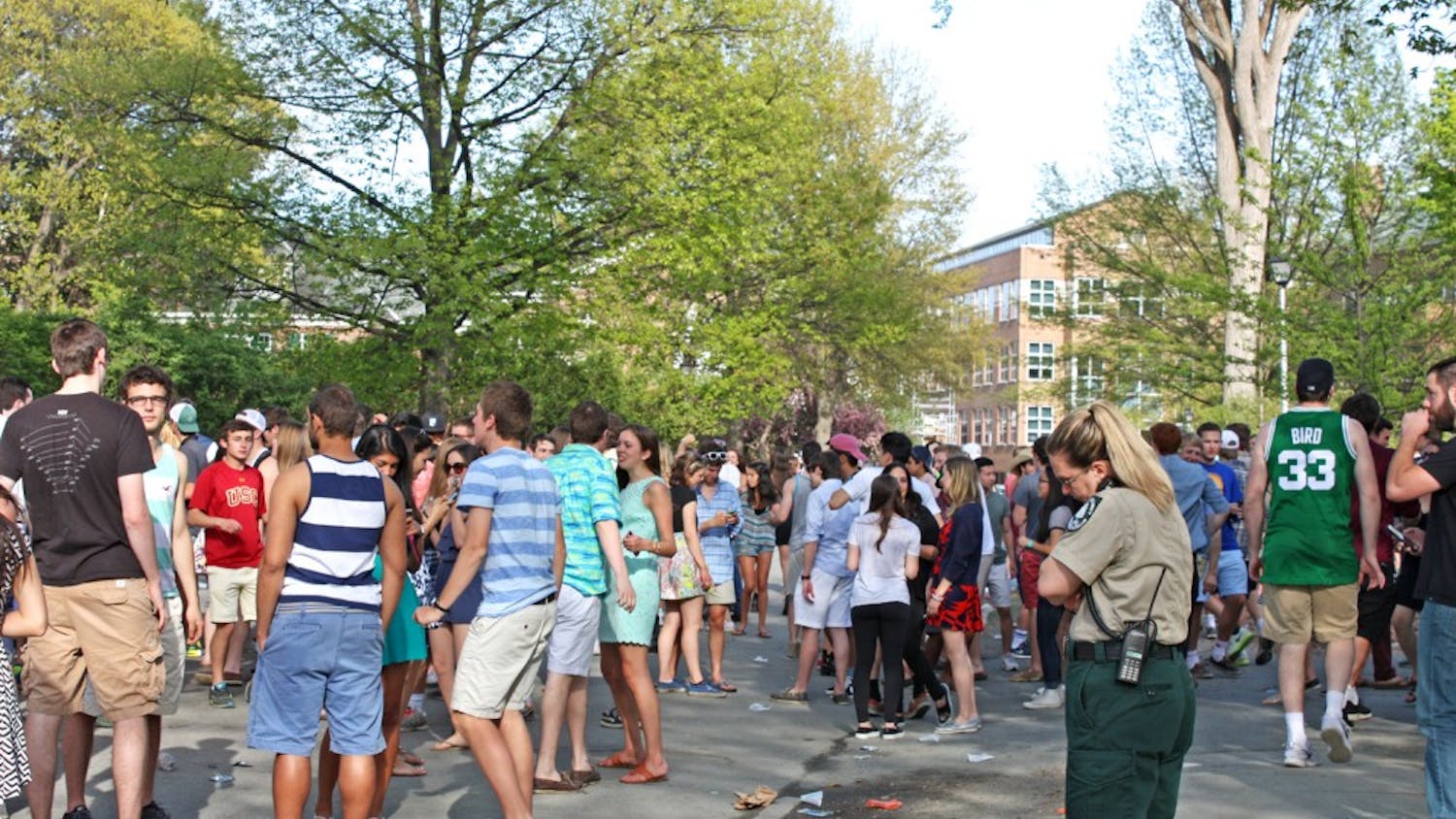"We have just finished what has been a highly contested, and even controversial, election," Wright said. "I do think that we have work to do, but as always my confidence comes from those of you in this room. You should never waver in what you do and in what you represent, and you should never doubt the Board of Trustees' support."
Folt continued the meeting by reviewing the admissions report for the Class of 2011, speaking on behalf of retiring Dean of Admissions Karl Furstenberg. Folt noted that 3.3 percent of students in the class of 2011 are Native American, down from 3.8 percent last year, a decrease that she acknowledged may be due to the racially-charged events of Fall term.
"The decrease in yield of Native American students could be due to events in the fall," Folt said. "But it could also be due to the fact that some other schools, like Harvard, MIT and Brown, have been recruiting aggressively from this population."
Folt told professors that the incoming freshman class has an unusually high yield of 53 percent, which may result in Dartmouth being the only college in the Ivy League that will not need to accept students from its wait list. The Class of 2011 is also the most diverse class in the history of the College, with the highest percentage of Asian-American and Latino students, as well as a large number of African-American students, Folt said. Next year's freshman class will also have the highest number of international students in Dartmouth's history, attributable to closer ties with the United World Colleges. The number of recruited athletes also rose, as did the number of students from the southern and western United States, Folt said.
The faculty also heard recommendations from the Committee on Instruction, which approved two motions to revise the Organization, Regulations and Courses manual at its winter meeting. The first measure, introduced at the meeting by committee chair and computer science professor Scot Drysdale, proposed to change the wording of the Technology and Applied Sciences distributive requirement in the ORC manual. According to Drysdale, the changes will tighten the criteria for a course to fulfill the TAS requirement.
"We do want to see that there is a study of technology, not just use of technology," Drysdale said. "It is meant to be exclusionary."
The move was contested by Mark Williams, a professor of film and television studies, who claimed that the revisions exclude the digital humanities, and "reintroduce the divide between technology and the humanities."
"I believe that there are unforeseen implications in these changes," Willams said. "I am concerned about the re-emphasis on methodologies, and a de-emphasis on the environmental, ethical and social consequences of technology."
Despite this argument, the motion was passed by a majority of faculty members.
"These changes simply reflect what is already going on with the TAS requirements," said Eric Hansen, chair of the engineering department. "The revision simply brought words to what was already the practice."
The faculty members present unanimously agreed to change the policy on courses taken with the credit/no credit option. The change will disallow a course with a grade of "credit" only from satisfying a general education requirement.
These recommendations were presented at the Winter term meeting of the faculty of art and science, but were not voted upon because the required quorum of 75 members was not met.
Monday's meeting also recognized the contributions to the College made by professors David Becker of the government department, Dick Birnie of the earth sciences department, Leo Spitzer of the history department and Peter Saccio, the Leon D. Black Professor of Shakespearean Studies and a professor in the English department. All four retired from the College this year.




